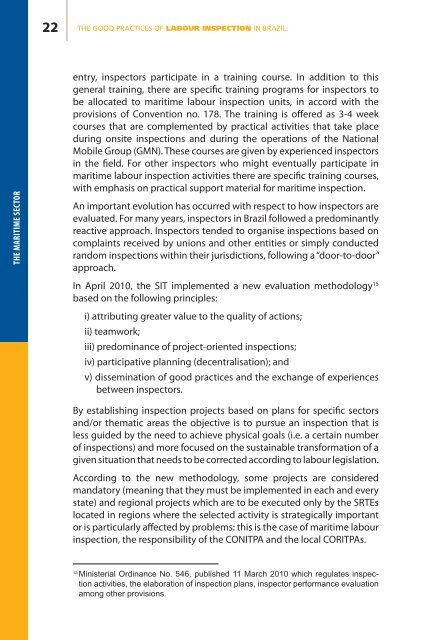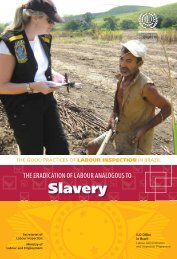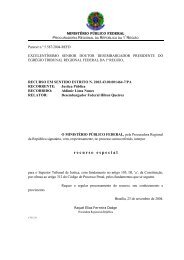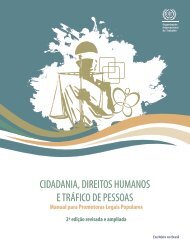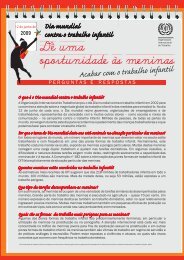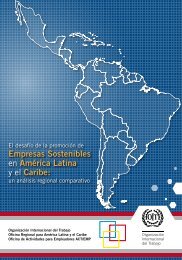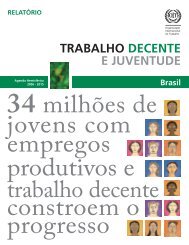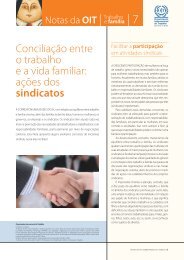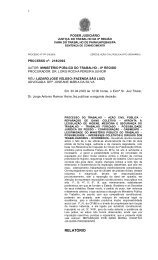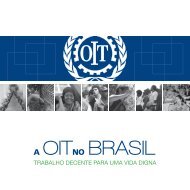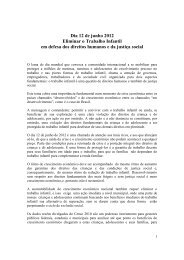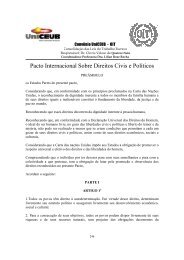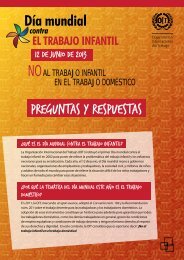The Maritime Sector
The Maritime Sector
The Maritime Sector
You also want an ePaper? Increase the reach of your titles
YUMPU automatically turns print PDFs into web optimized ePapers that Google loves.
22THE GOOD PRACTICES OF LABOUR INSPECTION IN BRAZIL:THE MARITIME SECTORentry, inspectors participate in a training course. In addition to thisgeneral training, there are specific training programs for inspectors tobe allocated to maritime labour inspection units, in accord with theprovisions of Convention no. 178. <strong>The</strong> training is offered as 3-4 weekcourses that are complemented by practical activities that take placeduring onsite inspections and during the operations of the NationalMobile Group (GMN). <strong>The</strong>se courses are given by experienced inspectorsin the field. For other inspectors who might eventually participate inmaritime labour inspection activities there are specific training courses,with emphasis on practical support material for maritime inspection.An important evolution has occurred with respect to how inspectors areevaluated. For many years, inspectors in Brazil followed a predominantlyreactive approach. Inspectors tended to organise inspections based oncomplaints received by unions and other entities or simply conductedrandom inspections within their jurisdictions, following a “door-to-door”approach.In April 2010, the SIT implemented a new evaluation methodology 15based on the following principles:i) attributing greater value to the quality of actions;ii) teamwork;iii) predominance of project-oriented inspections;iv) participative planning (decentralisation); andv) dissemination of good practices and the exchange of experiencesbetween inspectors.By establishing inspection projects based on plans for specific sectorsand/or thematic areas the objective is to pursue an inspection that isless guided by the need to achieve physical goals (i.e. a certain numberof inspections) and more focused on the sustainable transformation of agiven situation that needs to be corrected according to labour legislation.According to the new methodology, some projects are consideredmandatory (meaning that they must be implemented in each and everystate) and regional projects which are to be executed only by the SRTEslocated in regions where the selected activity is strategically importantor is particularly affected by problems: this is the case of maritime labourinspection, the responsibility of the CONITPA and the local CORITPAs.15Ministerial Ordinance No. 546, published 11 March 2010 which regulates inspectionactivities, the elaboration of inspection plans, inspector performance evaluationamong other provisions.


